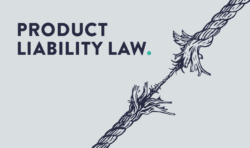A. Digital reform of the law of obligations
On 01.01.2022, the biggest changes to the German Civil Code (BGB) since the reform of the law of obligations at the beginning of 2002 came into force. The reason for this is the implementation of two European directives, more specifically Directive (EU) 2019/770 on certain aspects concerning contracts for the supply of digital content and digital services and Directive (EU) 2019/771 on certain aspects concerning contracts for the sale of goods. As both directives follow the approach of full harmonization, there will largely be a uniform legal framework throughout the EU once they have been implemented accordingly by the Member States. Due to the numerous and far-reaching innovations for digital components, one can justifiably speak of a digital reform of the law of obligations here.
An entire new segment was created in Secs. 327-327u BGB for consumer contracts for digital products, by which is meant the provision of digital content or digital services. Digital content is data that is created and provided in digital form. Digital services are those that enable the consumer to create, process, store, or access data, or to share (or otherwise interact with) data uploaded by the consumer or other users.
The scope of application of the new rules is broad: Digital content includes software, including apps for mobile devices, video and audio files, including music, and electronic games. Digital services include cloud services, file hosting, social media platforms and messenger services such as WhatsApp or Threema.
The anchoring of the new regulations in the general part of the law of obligations already shows that this is not a new type of contract, but rather cross-type regulations that will play a role in numerous types of contracts. It is unusual that a separate warranty law has also been introduced at this point. Specifically in sales law, new rules have been established for the purchase of goods with digital elements, which are understood to be goods that contain or are connected to digital products in such a way that the goods cannot fulfill their functions without them (e.g. smartphones, PCs, robotic mowers, navigation systems, many IoT components, etc.).
The basic concept of a material defect itself is new. Under the new law, a product is only free of material defects if it cumulatively (!) meets the objective and subjective requirements; in addition, it must meet the assembly or installation requirements and the requirements for integration of the digital product. This means that in the future, the seller must have objective quality components in mind even if subjective agreements with the buyer have been made. In the future, the quality of the goods will also explicitly include their functionality, compatibility and interoperability. This leads to a noticeable expansion of the definition of defects and thus to more extensive rights for buyers.
The obligation to provide updates is fundamentally new. The entrepreneur must ensure that the consumer is provided with updates, including security updates, which are necessary to maintain the contractual compliance of the digital product. This regulation is flanked by a corresponding duty to inform the consumer. This also applies in the law of sale for goods with digital elements. The provision that the updates must be provided during the provision period or during the relevant period according to the purchase contract in the case of a permanent provision of the digital product is still clear. However, the other provisions that updates must be provided for as long as the consumer can objectively expect based on the type and purpose of the product and other circumstances are much less clear. Until these vague legal terms are clarified by case law, entrepreneurs will have to live with considerable legal uncertainty. From a doctrinal point of view, it should not be overlooked that the sales contract, which previously involved a one-time exchange, will become a continuing obligation for the first time as a result of the newly introduced update obligation. The consequences of this paradigm shift for the law of sale are not yet fully foreseeable.
What is also new is that the mere – active or passive – provision of personal data by the consumer can constitute a consideration. Provided that this data is not necessarily used by the entrepreneur to fulfill his performance obligations or legal requirements, the new rules take effect, resulting in a much broader scope of application. Thus, not only digital payment services, but also free social networks such as Facebook, Instagram and TikTok are covered by the new rules, since the user provides his personal data here and ultimately pays with it. It is precisely at this point that consumer protection is therefore massively expanded. In terms of concept and even more so in terms of content, there are numerous points of contact and overlaps with German and, above all, European data protection law with regard to personal data as currency, which is also shown by the fact that the new law has attempted to regulate the consequences of declarations by the consumer under data protection law (Sec. 327q BGB). Against this background, it seems almost conservative that digital representations of a value and thus in particular cryptocurrencies such as Bitcoin and Ethereum were also regulated as possible consideration, Sec. 327 para 1 2nd sentence BGB.
Under the new law, entrepreneurs in particular can also no longer rely on having to provide a warranty for two years for goods sold. For example, the consumer’s claims in the case of permanent provision and claims for breach of an obligation to update do not expire before twelve months after the end of the provision or updating period. Since this period can naturally be considerably longer than two years, this in itself can lead to a sometimes massive extension of the warranty period. But that’s not all: If a defect becomes apparent within the limitation period, the statute of limitations does not expire until four months after this date at the earliest. Since this date is within the consumer’s sphere of influence, entrepreneurs are likely to be confronted with such claims more frequently in the future more than two years after conclusion of the contract. Moreover, if the consumer returns the purchased goods, in particular for subsequent performance, his warranty claims will not become time-barred before the expiry of two months from the date of return to him. It is foreseeable that the new rules, especially if they are applied cumulatively, will lead to a significant extension of the warranty in numerous cases.
For the benefit of the consumer, the period during which it is presumed that a product was defective from the outset has also been doubled from six months to one year. Furthermore, if the digital component is provided on a permanent basis, it is presumed that it was already defective during its previous provision if a defect occurs. This raises questions, for example, if an electronic device stops working immediately after an update.
Another consumer-friendly aspect is the new provision that now even the buyer’s positive knowledge of a defect at the time of purchase no longer leads to a loss of his warranty. What is now required is that the consumer is specifically informed that a concrete feature of the goods deviates from the objective quality requirements and that the deviation as such is once again expressly and separately agreed. This will pose additional problems for entrepreneurs, especially when selling B-goods, returned products, defective products, goods with (almost) expired best-before dates, etc.
Also worth mentioning are new regulations on guarantees in favor of consumers. In the future, minimum information will be required by law for these. In addition, the guarantee statement must be made available to the consumer on a durable medium at the latest at the time of delivery of the goods. In the case of a shelf life guarantee, there is now even a legally prescribed minimum content. The consumer must at least be granted a right to subsequent performance in it.
Recourse in the supply chain has also been partially redefined. Such recourse by the entrepreneur against its own sales partner now also exists for digital products. What is new is that the previous maximum period of five years for the suspension of expiration has been deleted. In individual cases, it will therefore be possible to take recourse against a company’s own supplier for longer than five years.
B. Other changes in civil law
New information obligations will be created for operators of online marketplaces from 28.05.2022. This includes, in particular, more detailed information before the conclusion of the contract on the ranking of the displayed products and, when displaying a product comparison, the sellers that were considered in the context of this comparison. Entrepreneurs must also point out the circumstance if the price for an offer has been personalized based on automated decision-making, i.e. by an algorithm (Sec. 312k BGB in conjunction with Art. 246d EGBGB, Art. 246a EGBGB).
Also noteworthy is the new Art. 246e of the Introductory Act to the German Civil Code (EGBGB), which not only prohibits certain infringements of consumers’ interests, but also introduces fines for such infringements in civil law (!). The prerequisite is the existence of a widespread violation or a widespread violation with a Union dimension. Such a violation already exists, for example, in the case of the use of general terms and conditions that violate Sec. 309 BGB (prohibition of clauses without the possibility of evaluation), but also in the case of a violation of the new information requirements of Sec. 312k BGB (see above). It is also sufficient that the goods are not delivered to the consumer within a reasonable period set by the consumer or that the receipt of a revocation is not confirmed by the entrepreneur in the manner provided by law. Fines in these cases can amount to up to EUR 50,000,00; in the case of an entrepreneur who has achieved an annual turnover of more than EUR 1.25 million in the previous year in the countries affected by the infringement, the fine can even be up to 4% of the annual turnover. Violations of consumer protection provisions under purely civil law may therefore in future even lead into the realm of administrative offenses.
Conclusion: The German Civil Code has been made noticeably more consumer-friendly in numerous respects. In addition to new and extended rights, an entire catalog of fines has even been added. Entrepreneurs must adapt to these new “rules of the game”.
C. Changes in competition law
The following changes to the law on fair trading should be mentioned in particular:
First and foremost, there is the new claims for damages under Sec. 9 para. 2 UWG. For the first time, not only competitors but also consumers will be able to claim damages in the future (more precisely: from 28.05.2022) in the event of certain breaches of competition law. In addition, this claim will not expire after six months, as is customary in competition law, but only after one year.
Online marketplaces and comparison portals, but not pure online search engines, will have to indicate from the same date which main parameters are used for ranking the displayed results and their relative weighting compared to other parameters. If the entrepreneur makes customer reviews accessible, it is also considered essential information whether and how it is ensured that the reviews originate from consumers who have actually purchased or used the respective goods or services. Covert advertising in search results will also be expressly prohibited in the future, as will the use of fake consumer reviews.
A new element of unfairness has also been introduced in connection with the increasingly discussed so-called dual quality of products: It is considered misleading if a product is marketed as if it were identical to a product made available on the market in other member states, but the composition of the product differs significantly. The differences must be clearly recognizable to the consumer.
In addition, there is a further fine in Sec. 19 UWG new version for violation of consumer interests. The prerequisite is unfair conduct in the case of a widespread infringement or a widespread infringement with a Union dimension. The fine amounts to EUR 50,000,00; for an entrepreneur who has achieved an annual turnover of more than EUR 1.25 million in the countries affected by the infringement, the fine can even be up to 4% of the annual turnover.
This also increases the liability risk for companies in competition law. In addition, there are new unfair competition laws and thus a general increase in the risk of warning letters.
Do you have any questions about this news, or would you like to discuss the news with the author? Please contact: Dr. Florian Niermeier







